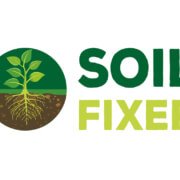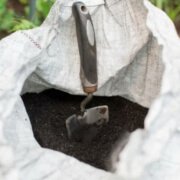We look at how and why biochar is both sustainable and good for climate change. We go through a number of burning (!) questions people want answers for before they work with a biochar supplier.
Climate change is on everyone’s mind. We have seen more and more companies repositioning their marketing around ‘Green credentials’. This re-focus should be fantastic news, but we are aware of and dislike ‘Green Washing’. The change has to have a meaningful impact. We believe we have very strong sustainability credentials, but we also know we have more to do around gathering evidence and proof. Let’s have a closer look!
Our passion is making the very best compost and biochar products that work and help improve (fix) your soil. If products do not work, how green and eco-friendly they are becomes something of background discussion. From the very early days (7 years and counting) it has been clear biochar could be an important part of a green, sustainable, circular economy.
We view ‘sustainability’ as the overarching term and break it down into four levels from the minimum criteria to the pinnacle goal. We often refer to the analogy from the BBC Antique Roadshow: basic, better, best.
- Basic green credentials: ‘natural’, ‘organic’, and peat-free
- Better: made using sustainable materials
- Better: the business is ‘at least’ carbon-neutral
- Best: the business is carbon-negative
(1) Basic
Our products are 100% ‘natural’, ‘organic’, and peat-free. These terms mean different things to different people – see our definitions.
(2) Better
We review and constantly seek to ensure we manufacture only using sustainable materials.
We make biochar from FSC sustainable wood. Where woodland regrowth balances with that logged, wood is a sustainable resource. Over the past 3 years, we have become increasingly concerned. The world has declared a climate emergency. One of the top ‘solutions’ for limiting climate change is halting deforestation and commencing mass aforestation – i.e. stop cutting down forests/woodland and plant more trees. We have to ask ourselves – is it viable to use FSC wood to make biochar going forward? It’s not an entirely simple answer.
Most European woodland workers who make charcoal/biochar are passionate about the environment. They will note that forests need managing. Some trees need felling and removing. Using wood wisely is key. All forestry and tree cutting creates brash, toppings, and offcuts (the small branches). Converting these ‘virgin wood residues’ to biochar makes sense – as long as the demand for wood is not driving excessive clear cutting / logging.
Going forward, we believe SoilFixer has to move to make biochar from genuine end-of-life wood – what most people would think of waste wood that cannot be recycled again. This is a challenge – let’s just say, moving from a manufacturing site using ‘virgin’ wood to ‘Waste wood’ that is controlled by Environmental Agency regulatory protocols is not without challenges. If we do this, we are confident the sums will demonstrate our business is carbon neutral.
(4) Best: climate negative
We are aware biochar has the potential to be a significant technology to help mitigate climate change. (Adding biochar to soil sequesters (locks) carbon into the soil – it prevents the wood degrading to carbon dioxide and it helps offset CO2 in the atmosphere). If we make enough biochar from the right resources is becomes a carbon-negative business. Getting into the detail of every stage of the supply chain, packaging and transport is hugely challenging for any corporate big or small. Our biochar colleagues over at the European Biochar Centre and the Ithaka institute (Austria) have done a huge amount of work and what needs to be tracked and traced.
SoilFixer products are made from 100% natural resources
Natural (definition): existing in and derived from nature.
Wood, biochar (a type of charcoal made in a non-polluting way for use as a soil additive), compost and wood ash all occur in nature.
Biochar is made using the natural process of pyrolysis (burning in absence of oxygen).
Colloidal humus is made in tiny amounts naturally in soil. SoilFixer follows what nature does occasionally as a full-time occupation using an efficient process.
SoilFixer products are made using sustainable resources
Sustainable (definition): able to be maintained at a certain rate.
We use wood from managed forests and coppice woodlands. These woodlands produce significant amounts of ‘waste’ wood such as brash and toppings. We use this wood to make biochar. Our kilns can process many types of wood. We occasionally convert untreated (‘clean’) waste wood which has reached the ‘end-of-life’ and has no economic use (e.g. old pallets and wood offcuts). In the UK, such waste wood is almost always imported under the Forest Stewardship Council (FSC) protocol.
SoilFixer products are 100% organic
Organic (definition): (a) relating to or derived from living matter, e.g. “organic soils”, “organic matter”. Also organic: (b) (of food or farming methods) produced or involving production without the use of chemical fertilizers, pesticides, or other artificial chemicals.
SoilFixer products are 100% organic; they are made from natural living matter and have no artificial chemicals added.
However – our products are not ‘organic certified’ – i.e., we do not have certification from an organic scheme such as the Soil Association.
SoilFixer products make a positive environmental impact
SoilFixer products contain biochar and colloidal humus. Both are resistant to decomposition in soils. They can lock carbon and help you reduce your carbon footprint.
Biochar and humus ‘hold on’ to nutrients that are released into the soil when organic matter breaks down. Plant roots are able to access this nutrient store. Like fertilisers and other soil additives – they have the to do good if used correctly and harm if used incorrectly.
SoilFixer products help the environment because they decrease…
- Soil erosion
- Nutrient run-off
- Increase the amount of soil organic matter (SOM)
The organic matter in the Earth’s soil is the second largest store of carbon. Poorly managed agriculture and gardening reduce soil carbon. Our products help increase soil carbon.
Colloidal humus, as we define and make it, is a carbon sink. It can ‘lock’ carbon into soil for 10 to 100 years and offset greenhouse gas emissions and hence global warming.



